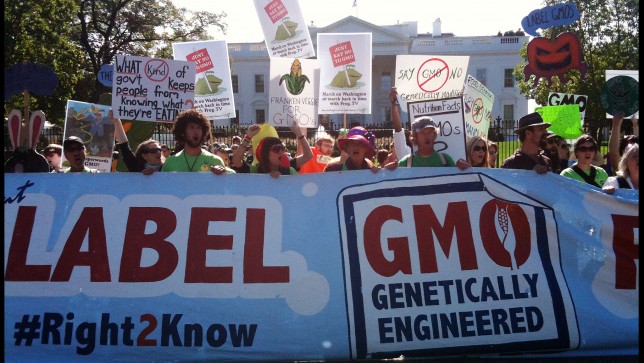The U.S. Food and Drug Administration (FDA) has issued its technical comments to the Senate Agriculture Committee on the proposed GMO labeling Dark Act bill being put forward by Senators Roberts and Stabenow, and they are strongly critical.

Most notably the FDA red flags the bill’s narrow and ambiguous definition of “bioengineering,” which “will likely mean that many foods from GE sources will not be subject to this bill. For instance, oil made from GE soy would not have any genetic material in it. Likewise, starches and purified proteins would not be covered.”
The FDA further comments that it “may be difficult” for ANY GMO food to qualify for labeling under the bill in that it would have to be proven that a GMO product’s modification could not be achieved through conventional breeding or be found in nature – something near impossible to determine. This means most GMO foods would not be subject to mandatory labeling under this bill.
The FDA’s technical comments also highlight that the proposed bill’s allowing of electronic labeling is “in tension” with the FDA’s requirements that all labels be on package. Additionally the agency points out numerous instances of poor and vague drafting in the bill that would cause significant confusion in the marketplace. The FDA also notes a number of areas where the proposed bill conflicts with the FDA’s authorizing statute and its regulations.
The FDA points out many of the same flaws in the bill’s language that a national coalition of more than 70 consumer, food safety, farm, environmental, and religious groups along with several food corporations sent in a joint letter to all members of the Senate yesterday.
“The FDA critique makes it very clear that this is really a non-labeling bill disguised as a labeling bill. Its very definition excludes vast numbers of, and potentially all, GMO products from labeling. Preempting the democratically decided upon laws of five states based on this poorly written, discriminatory and ineffective legislation would be a travesty. A bill of this importance merits hearings, expert testimony and thorough legal analysis, not the “backroom dealing” that created this deeply flawed draft. As it stands, this bill is a sham and a legislative embarrassment,” said Andrew Kimbrell, executive director of the Center for Food Safety.


















